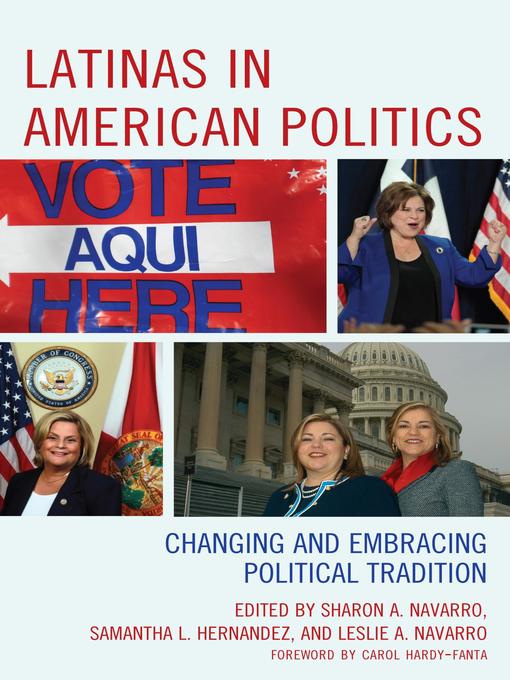- Sports
- Popular Magazines
- News & Politics
- Revistas
- Home & Garden
- Cooking
- Cars & Motorcycles
- Celebrity Gossip
- Art & Architecture
- Just Added Magazines
- See all
-
Description
-
Creators
-
Details

- Sharon A. Navarro - Editor
- Samantha L. Hernandez - Editor
- Leslie A. Navarro - Editor
- Tony Affigne - Contributor
- Ivy A. M. Cargile - Contributor
- John Garcia - Contributor
- Sarah Allen Gershon - Contributor
- Lizeth Gonzalez - Contributor
- Julia Marin Hellwege - Contributor
- Samantha L. Hernandez - Contributor
- Patricia D. Lopez - Contributor
- Jose Marichal - Contributor
- Jennifer L. Merolla - Contributor
- Jessica Lavariega Monforti - Contributor
- Leslie A. Navarro - Contributor
- Sharon A. Navarro - Contributor
- Jean Reith Schroedel - Contributor
- Christine Marie Sierra - Contributor
- Juan Urbano - Contributor
- Walter Clark Wilson - Contributor
- Carol Hardy-Fanta - Author of introduction, etc.
Kindle Book
- Release date: May 12, 2016
OverDrive Read
- ISBN: 9781498533362
- File size: 5286 KB
- Release date: May 12, 2016
EPUB ebook
- ISBN: 9781498533362
- File size: 5286 KB
- Release date: May 12, 2016
Formats
Kindle Book
OverDrive Read
EPUB ebook
subjects
Languages
English
